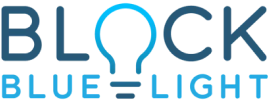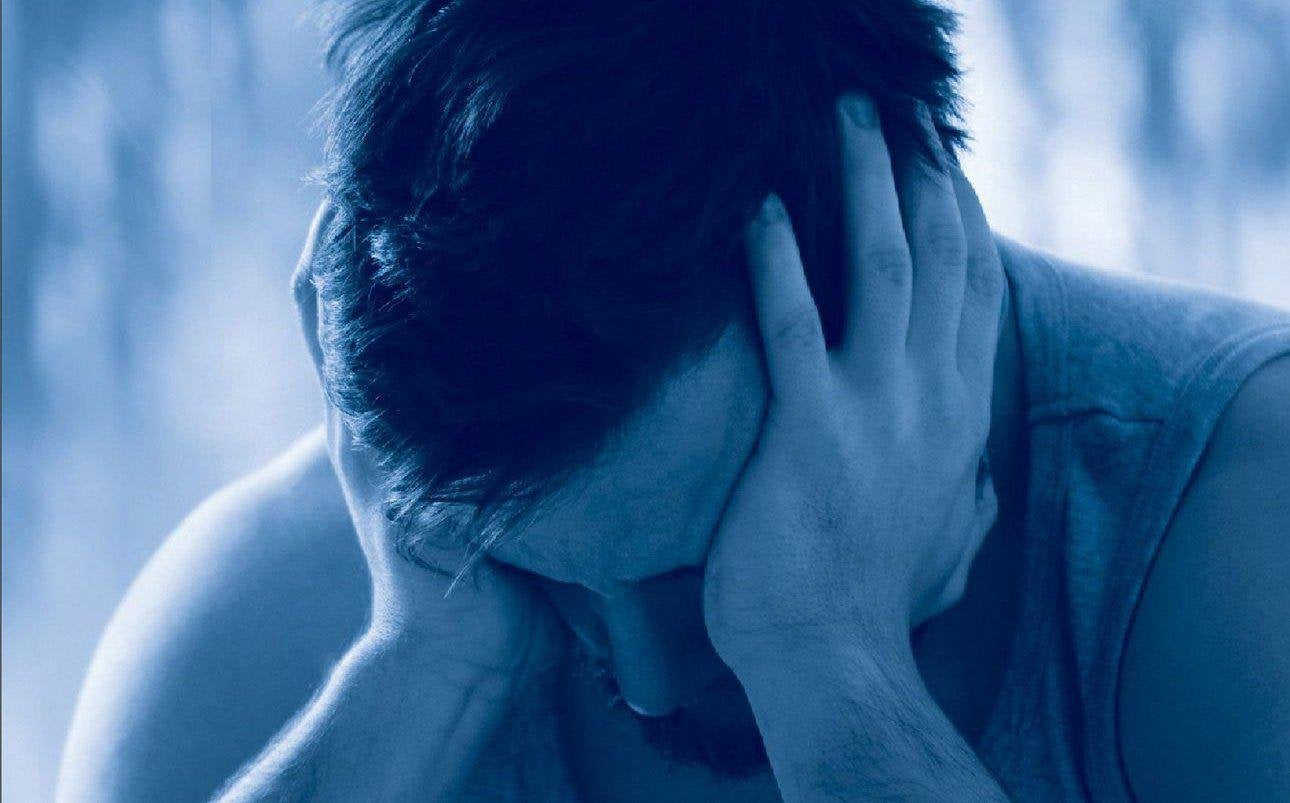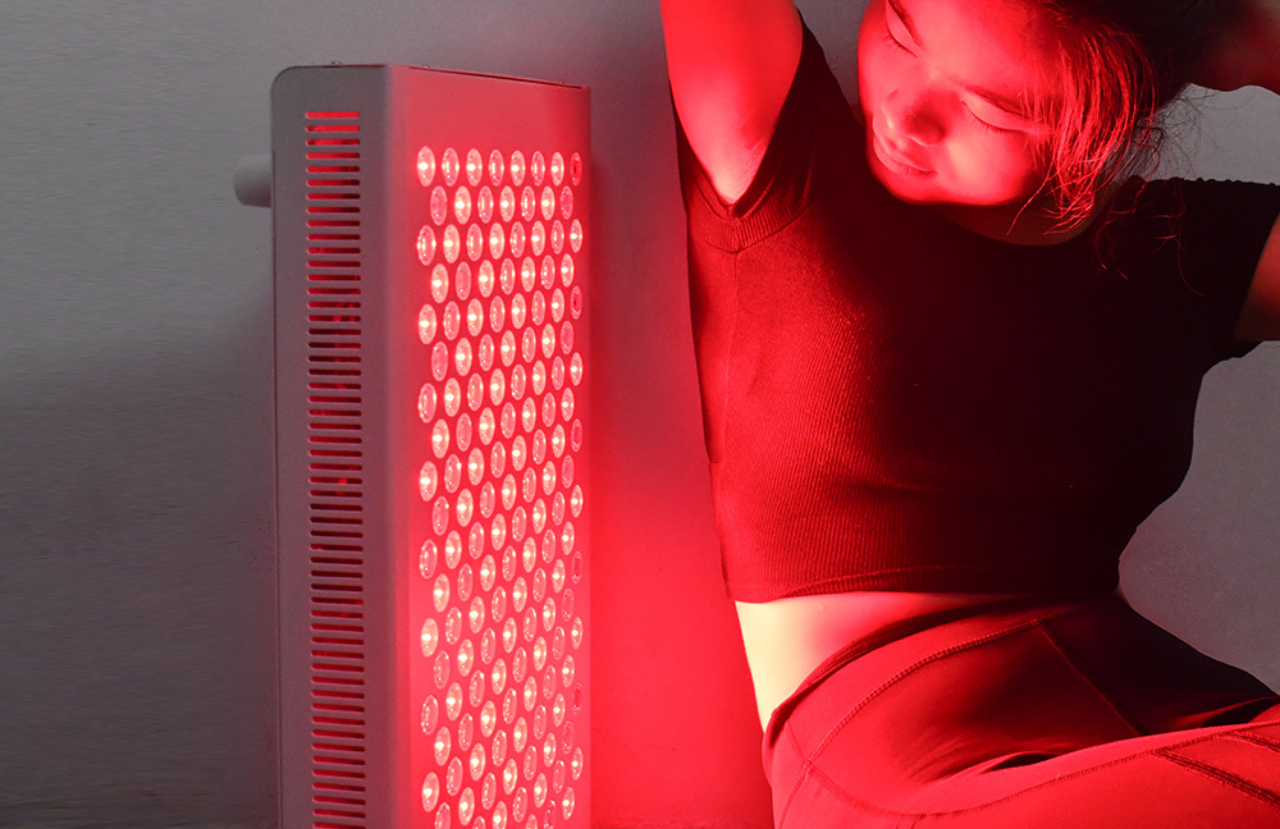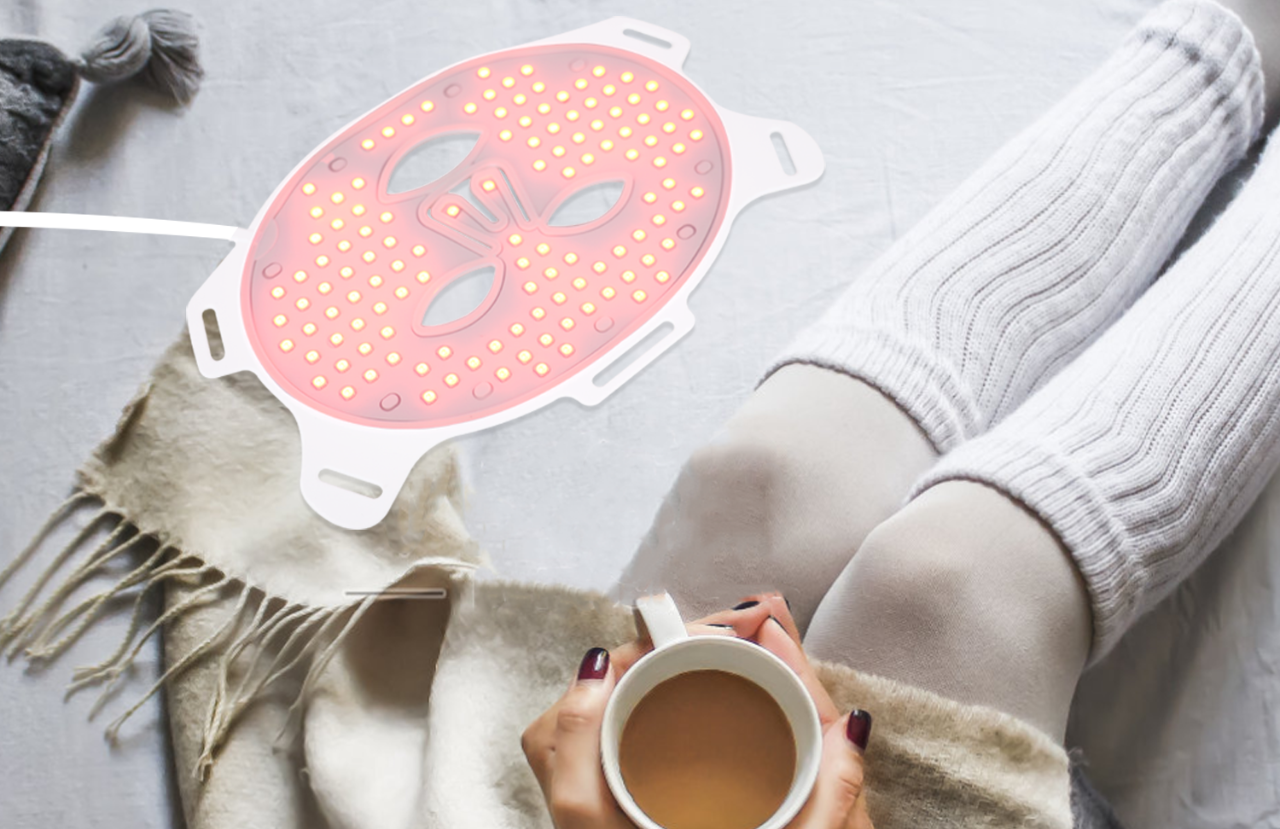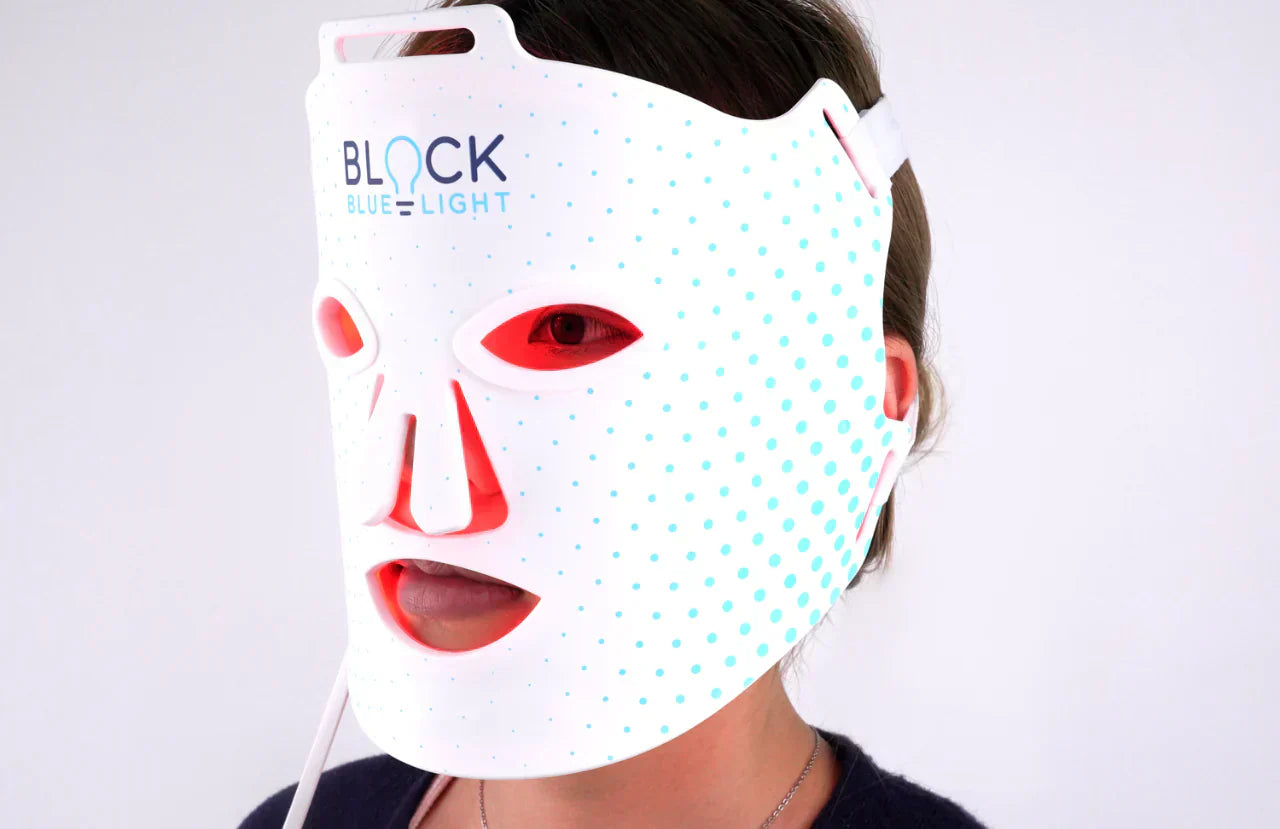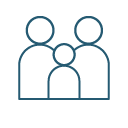It is difficult to think that something as universal and present everywhere as light could harm us, but it is a reality, light, especially blue light, can affect us negatively in multiple ways, compromising our mental health.
In this article we will explore blue light negative effects on mental health and how we can prevent this with the use of blue light glasses and computer glasses.
How Can Blue Light Affect My Health?
Humans need to maintain mental health, to be in balance with our environment, and one of the main phases of our day that intervenes in this balance is sleep (1).
The main external factors that affect sleep are; lack of physical activity, poor sleep hygiene, excessive use of caffeine, and in recent years the more predominant factor is the use of artificial light, especially blue and green light (2).
Blue light is the most dangerous light for the human visual system of the spectrum of visible light, it affects two parts especially, our eyes and our Circadian Rhythm (our internal clock) (3, 4).
Fatigue Eye, Eye Inflammation and Dry Eyes Induced by Blue Light (Xerophthalmia)

To see visible light, it has to cross the eyeball to reach the retina, which is the place where light is received, and then the stimulus is sent to the brain so that this light is processed as images, on its way to the retina, light passes through two important layers, such as the cornea and the lens, even being able to deteriorate them (5, 6).
Multiple studies have shown that corneal cells are directly affected by blue light radiation and that their lifespan decreases, generating inflammation of human corneal epithelial cells over time, which could lead to fatigue eye, eye inflammation, and dry eyes induced by blue light (xerophthalmia) (6).
Wake-Sleep Rhythm Disturbance
More than 85% of mammal species are polyphasic sleepers, meaning they sleep for short periods during the day. Most of humans are monophasic sleepers, meaning that our daylight hours are separated into two, activity and sleep, so it is important to keep these two separate (2).
Cells in the retina called intrinsic photosensitive ganglion cells or ipRGC, contain a blue light sensitive pigment, melanopsin, that is stimulated by blue light. Several studies have shown that these cells help synchronize our wake-sleep rhythms or circadian rhythm (3).
These cells carry information of this type of light and it sends it to the pineal gland (epiphysis), which is responsible for the secretion of melatonin. This hormone, when it is in the bloodstream, induces sleep, apart from having repair properties in the immune system (7).
When we see blue light, melatonin secretion is disabled and we remain in a “state of alert", while in the absence of blue light, production and secretion of melatonin is activated.
This has one purpose, so our bodies can be regulated through sunlight, especially with the blue light. This type of light is the main tool that guides the brain to activate and/or deactivate biological rhythms (8).
All of this leads to a great question, what happens if our Natural Clock is altered?.
Insomnia
Insomnia is the subjective sensation of insufficient sleep and has become more prominent in recent decades, especially among kids and adolescents (3).
This Insomnia can be due to difficulty maintaining sleep, or due to difficulty falling asleep, there are many physiological factors and external agents that play a role in insomnia in humans.

The main external factors that affect sleep are; lack of physical activity, poor sleep hygiene, excessive use of caffeine, and in recent years the more predominant factor is the use of artificial light, especially blue light (4).
A recent study proved that wearing protection lenses before sleep diminishes the blue light effect improving significantly the sleep quality.
Sleep loss is associated with many mental diseases, like Anxiety disorders, Depression disorders and Attention Deficit Hyperactive Disorder (ADHD) (9).
Depression Disorders
Depression affects 300 million people worldwide and is the most common mental illness in the United States, affects 1 in 10 Americans, and is the leading cause of work disability in ages 15 to 45 years (10, 11 )
The relation between sleep and depression is quite important, about three quarters of people with depression have sleep disturbances.
Continuous exposure to blue light at nighttime completely alters the circadian rhythm, maintaining an alert state even at night, favoring insomnia, increasing the production of hormones like adrenaline, dopamine, serotonin and cortisol, all of these related with mental illness like depression and anxiety (12).
The balance of the wake-sleep cycle is extremely important to avoid the production of these hormones and keep the mind healthy, recent studies have shown that small changes in lifestyle such as reducing exposure to blue light can greatly improve sleep and thus avoid mental disturbances (13).
Anxiety Disorders

Anxiety disorders are one of the most common mental disorder in overall population. In the US 10 to 25% of the population suffers from anxiety (12)
Sleep Disturbances like Insomnia are deeply related to anxiety disorders, studies indicate that anxiety disorders can be found in about 24 to 36% of subjects with insomnia (12).
The normal cycle of cortisol controlled by our biological clock causes this hormone to increase in the morning and decrease as night falls, but exposure to blue light alters this entire cycle, increasing the presence of this hormone at night, which contributes to a persons stress levels, this stress if not managed properly leads to anxiety and a vicious anxiety-stress cycle, and all of this due to exposure to blue light at night (13).
Attention Deficit Hyperactive Disorder (ADHD)
ADHD is a common pathology in modern times, characterized by symptoms such as inattention, hyperactivity and/or increased impulsivity, it affects children and adults significantly, currently 1 in 10 children will be diagnosed with ADHD, and approximately 2.9% of adults in the US suffer from ADHD (14).
The relation between ADHD and sleep disturbances has been studied importantly, but sometimes, it is sought to treat this disease without improving sleep disturbance.
One of the main causes that generate sleep disturbances in children is the use of artificial blue light in the night hours.
Children with ADHD usually stay up late watching a computer, TV, or even their mobile devices, making their condition worse, so simple measures such as blue light glasses or protective screens can help this child improve his sleep quality (13, 14).
What Can I do to Block This Blue Light?
There are several products to block blue light, and they work similarly, filtering blue light from white light emitted from the sun or electronic devices.
The main products available in the market are:
Blue light filter computer glasses
Computer glasses with blue light filters are designed for daytime use. These Glasses have been created to reduce your blue light exposure across the entire blue light spectrum by 50%. This helps eliminate headaches, migraines, sore and dry eyes, and even eye damage, which are all symptoms of too much blue light entering the eyes.
Be careful when choosing who to buy your computer glasses from as not all blue light glasses are created equal. Many of the cheaper versions for sale don't filter the right amount of blue light, and don't filter not across the whole blue light spectrum. This unknowingly leaves your eyes still exposed setting you up for long term eye damage.
Blue Light Blocking Glasses


Blocking 100% of both blue and green light at night is essential to removing the wavelengths of light that send signals of daytime to your brain. This will ensure you have sufficient levels of melatonin for deep and restful sleep. Make sure you opt for blue blocking glasses that have been proven to completely remove the blue and green light spectrum such as our Night-time Blue Blocking Glasses
Blue Light Free Lighting and Bulbs
Protecting your eyes with blue light glasses is only solving part of the blue light problem. Our skin also has receptors that respond to exposure to blue light. When our skin is exposed to blue light after sunset from the lighting and devices in our homes, just like the eyes, creates a daytime signal to the brain which suppresses the release of our sleep hormone melatonin.

Replacing the light bulbs in your home with globes that emit no blue light will remove the biggest source of blue light in you home. This will provide you with full body blue light protection. Utilising other blue light free lighting such as red night lights, amber book lights, and blue blocking torches, which are all great solutions for your blue light free tool kit.
100% light blocking Sleep Masks

Just a tiny amount of light hitting your eyes whilst you sleep can have a dramatic impact on your quality of sleep.
Any no one wants poor sleep, right?! Most eye masks just don't cut it in the light blockage department, letting in too much light through the material used or in particular up under the nose area.
That's where the Deluxe Delta Sleep Mask takes centre stage.
100% blackout with infinitely adjustable eye cups means it is customisable to suit your face shape. The donut style eye cavities offer deep touch pressure therapy for induced relaxation whilst eliminating pressure on the eye itself. Using a mask that is 100% blackout will ensure you have true darkness while you sleep which has been proven to significantly increase both REM and deep sleep.
What Else Can I Do to Have a Better Sleep?
Sleep is one of the basic needs of the human being since, during sleep, we store memories, tissue regeneration occurs and waste components are eliminated, to prevent sleep disorders, sleep hygiene is very important.
Sleep hygiene is all those habits that we can take to avoid insomnia and other sleep disorders, and guarantee deep and comforting sleep, among the different measures we can do, the most recommended by professionals are:
- Do not consume important calories after 6 pm: Eating heavy or rich calorie foods can lead to excessive energy before sleep or worse can induce indigestion on some people and be very annoying so it affects falling sleep.
- Do not perform activities in bed other than sleeping or having intercourse: Use the bed only for these two activities, reading in bed, watching T.V or even using your smart gadget is not recommended at all.
- Avoid stimulants after 8pm: Drinking caffeine or nicotine after 8pm can affect your sleep, and even if it is well known that alcohol helps people falling sleep, it will affect them in the middle of the night, because a that time the body starts processing the alcohol and it will have its main effects in the body.
- Perform Activity during the day: Studies have shown that even 10 minutes of exercise performed during the day, can have a big impact in our sleep, but these activities should not be performed in the night because that can have an opposite effect and maintain the body active making it difficult to the person to fall sleep, but this specific habit changes from person to person, so you should try what fits you best.
- No electronic equipment such as a television or other devices in the room: These devices generate blue light, and as we see before, it is not recommended at all that we se this before falling sleep, these devices can cause a new diseases called techno-induced insomnia, but if you need to have these equipments, or cant live without seeing these devices before sleep, you should get a screen protector so the blue light does not affect you.
- Having a Comfortable Room: Make you’re your room is well ventilated and that the light can be controlled, it is better if you can be exposed to sunlight during the day and darkness in the night, so the circadian rhythm doesn’t get affected (15).
Final Thoughts
Many times, mental health is taken for granted, and we try to go on with our lives without giving it much importance, until suddenly we feel tired, with exhausted eyes, we don’t work well in our jobs, and we ask ourselves: what have we done wrong?
It is incredible to think that something that is everywhere like light can affect us in such a way, small alterations in our wake-sleep cycle can have great repercussions in our lives, sleep poorly, be upset, respond badly to the people we live with and affect our memory, so it is important to realize how much something that seemed as harmless to us as light can affect us.
But the important thing is that many actions can be taken to prevent this from deteriorating our health, and maintain a healthy biological rhythm, such as acquiring the objects available on the market today to block blue light and in turn perform the most recommended habits by experts to have better sleep hygiene, so that at the end of the day we can lie down on our beds and sleep peacefully.
Resources
- Mental Health [Internet]. World Health Organization. 2020 [cited 3 May 2020]. Available from: https://www.who.int/topics/mental_health/es/
- Chaput J, Dutil C, Sampasa-Kanyinga H. Sleeping hours: what is the ideal number and how does age impact this?. Nature and Science of Sleep. 2018;Volume 10:421-430.
- Chaput JP, Janssen I. Sleep duration estimates of Canadian children and adolescents. J Sleep Res. 2016;25(5):541–548.
- Chaput JP, Carson V, Gray CE, Tremblay MS. Importance of all movement behaviors in a 24 hour period for overall health. Int J Environ Res Public Health. 2014;11(12):12575–12581.
- Zheng QX, Ren YP, Reinach PS, Xiao B, Lu HH, Zhu YR, Qu J, Chen W. Reactive oxygen species activated NLRP3 inflammasomes initiate inflammation in hyperosmolarity stressed human corneal epithelial cells and environment-induced dry eye patients. Exp Eye Res. 2015;134:133–140.
- Lee JB, Kim SH, Lee SC, Kim HG, Ahn HG, Li ZR, Yoon KC. Blue light-induced oxidative stress in human corneal epithelial cells: protective effects of ethanol extracts of various medicinal plant mixtures. Invest Ophthalmol Vis Sci. 2014;55(7):4119–4127.
- Tosini G, Ferguson I, Tsubota K. Effects of blue light on the circadian system and eye physiology. Molecular vision. 2016;(22):61-72.
- Monica Anderson (2015-10-29). "Technology Device Ownership: 2015". Pew Research Center: Internet, Science & Tech. Retrieved 2016-10-28.
- Institute of Medicine (US) Committee on Sleep Medicine and Research; Colten HR, Altevogt BM, editors. Sleep Disorders and Sleep Deprivation: An Unmet Public Health Problem. Washington (DC): National Academies Press (US); 2006. 3, Extent and Health Consequences of Chronic Sleep Loss and Sleep Disorders. Available from: https://www.ncbi.nlm.nih.gov/books/NBK19961/
- World Health Organization, Media Centre, Depression Fact Sheet, Updated February 2017.
- Kessler R, Chiu W, Demler O, Walters E. Prevalence, Severity, and Comorbidity of 12-Month DSM-IV Disorders in the National Comorbidity Survey Replication. Archives of General Psychiatry. 2005;62(6):617-627.
- Cox R, Olatunji B. A systematic review of sleep disturbance in anxiety and related disorders. Journal of Anxiety Disorders. 2016;37:104-129.Shechter, A., Kim, E. W., St-Onge, M. P., & Westwood, A. J. (2018).
- Shechter A, Kim E, St-Onge M, Westwood A. Blocking nocturnal blue light for insomnia: A randomized controlled trial. Journal of Psychiatric Research. 2018;96:196-202.
- Wajszilber D, Santisteban J, Gruber R. Sleep disorders in patients with ADHD: impact and management challenges. Nature and Science of Sleep. 2018;Volume 10:453-480.
- Hirotsu C, Tufik S, Andersen M. Interactions between sleep, stress, and metabolism: From physiological to pathological conditions. Sleep Science. 2015;8(3):143-152.
- What is Sleep Hygiene? - National Sleep Foundation [Internet]. Sleepfoundation.org. 2020 [cited 3 May 2020]. Available from: https://www.sleepfoundation.org/articles/sleep-hygiene
